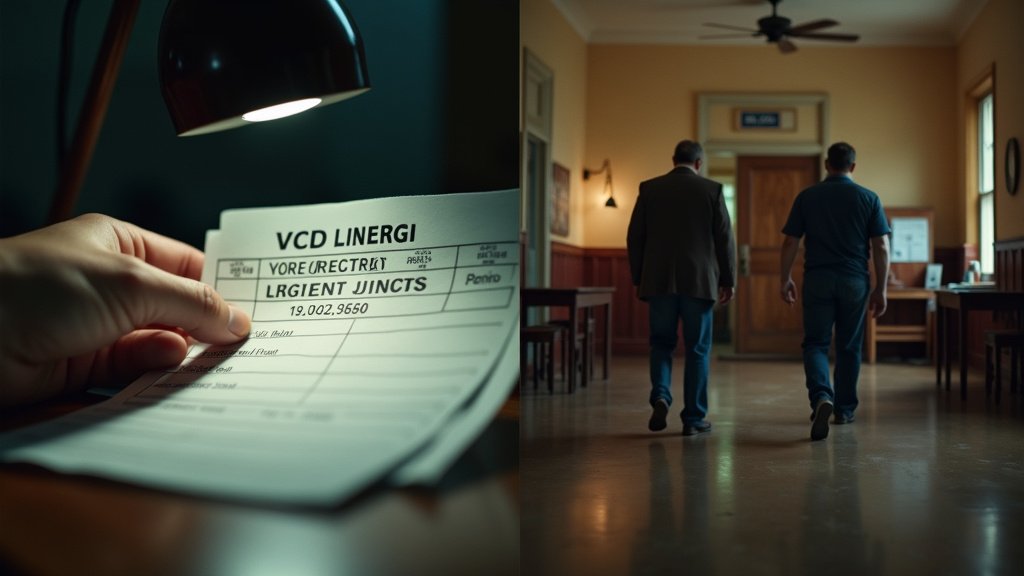A significant political division has emerged at the highest levels of Texas state government following Governor Greg Abbott’s veto of Senate Bill 3, a legislative measure aimed at prohibiting all recreational tetrahydrocannabinol (THC) products within the state’s borders. The veto, announced recently, has drawn sharp criticism from Lieutenant Governor Dan Patrick, who held a press conference on Monday to voice his strong objections and offer a contrasting perspective on the future of THC policy in Texas.
Lieutenant Governor Patrick did not mince words during his press conference, directly criticizing Governor Abbott’s decision. Patrick claimed that Governor Abbott’s veto of Senate Bill 3 indicates, in Patrick’s view, the governor’s underlying desire to see marijuana legalized in the state. This assertion sets up a clear point of contention between the state’s two leading Republican figures, highlighting differing approaches to controlled substances and their regulation or prohibition.
Governor Abbott’s Rationale for the Veto
Governor Abbott, in explaining his decision to veto Senate Bill 3, cited what he described as “valid constitutional challenges” inherent in the bill. According to the governor, the proposed state ban on all recreational THC products conflicts directly with existing federal laws that permit hemp products containing up to 0.3% THC content. This discrepancy between state prohibition and federal allowance for low-THC hemp products formed the core of Abbott’s legal concern, leading him to conclude that Senate Bill 3 was susceptible to successful legal challenges based on constitutional grounds.
The governor’s action, however, was not presented merely as an obstacle to legislative intent but also as a pivot point for future policy discussion. Governor Abbott has subsequently called for a special legislative session. The primary focus of this upcoming session, as outlined by the governor, is to discuss the potential regulation of the THC industry in Texas. This call for regulation marks a significant shift from the outright prohibition sought by Senate Bill 3.
Governor Abbott elaborated on the parameters he believes are necessary for any potential regulatory framework governing THC products. He emphasized the critical need for a structure that actively ensures public safety. Furthermore, any such framework must align seamlessly with federal law, specifically addressing the points of conflict that led to the veto of Senate Bill 3 regarding hemp and its permissible THC levels. Abbott also stressed that a robust and fully funded enforcement structure would be essential to the success and integrity of any regulatory system. Finally, he underscored the importance of developing a framework that can be implemented swiftly, indicating a desire for timely legislative action on this matter.
Lieutenant Governor Patrick’s Counter-Argument
In stark contrast to Governor Abbott’s call for regulation, Lieutenant Governor Patrick expressed vigorous opposition during his Monday press conference. Patrick views the prospect of regulating the THC industry as fundamentally equivalent to legalizing marijuana. This perspective suggests a binary stance on the issue, where regulation is seen not as a middle ground but as a direct path to full legalization, a policy outcome that Patrick evidently opposes.
Patrick’s criticism appears to frame Governor Abbott’s actions and proposed special session as a step toward a policy that Patrick finds unacceptable. By equating regulation with legalization, the Lieutenant Governor positions himself as a staunch advocate for a more restrictive approach, one that aligns with the intent behind the vetoed Senate Bill 3 – the comprehensive ban of recreational THC products.
The public exchange between these two high-ranking state officials underscores the complexity and political sensitivity surrounding cannabis-related policies in Texas. While Governor Abbott seems to favor navigating the nuances of federal law and establishing a controlled market through regulation, Lieutenant Governor Patrick advocates for strict prohibition and views any form of state-sanctioned industry oversight as tantamount to promoting legalization.
Understanding Senate Bill 3
At the heart of this political disagreement lies Texas Senate Bill 3. The bill, as originally drafted and passed by the legislature before the governor’s veto, had a singular, sweeping objective: to ban all recreational tetrahydrocannabinol (THC) products throughout the state of Texas. This proposed legislation reflected an intent by its proponents to eliminate access to a wide range of products containing the psychoactive compound found in cannabis, going beyond existing regulations on medical cannabis or low-THC hemp.
The bill’s journey through the legislative process highlighted the concerns among some lawmakers regarding the proliferation of THC products outside the state’s limited medical cannabis program. Its ultimate veto by Governor Abbott based on constitutional conflict with federal hemp laws redirected the conversation, shifting the focus from an outright ban to the potential development of a regulated market framework.
Political Implications and The Path Ahead
The public disagreement between Governor Abbott and Lieutenant Governor Patrick on this issue is politically significant. It reveals a rift within the state’s dominant political party regarding the appropriate stance on THC and related products. This is not merely a technical debate about bill language but a fundamental difference in policy philosophy and vision for the state.
Lieutenant Governor Patrick’s willingness to publicly challenge the governor’s decision and attribute a desire for legalization to Abbott’s actions signals a potential area of conflict that could influence the dynamics of the upcoming special legislative session. Lawmakers will be tasked with navigating these differing viewpoints as they consider potential regulatory frameworks for the THC industry.
The governor’s call for a special session specifically to address THC regulation indicates a commitment to finding a legislative solution that respects federal law while potentially establishing state control over products currently existing in a legal grey area due to the conflict between state and federal statutes. The parameters he outlined – public safety, federal alignment, funded enforcement, and swift implementation – will likely form the basis of discussions during the session.
However, the strong opposition voiced by Lieutenant Governor Patrick, who equated regulation to legalization, suggests that any legislative proposal seeking to establish a regulatory framework will face considerable resistance. The debate will likely revolve around whether Texas should pursue strict prohibition, limited medical access, or a broader regulatory approach that acknowledges the legal status of low-THC hemp under federal law.
The outcome of the special legislative session remains uncertain. It will depend on the ability of lawmakers to bridge the gap between the governor’s stated goals for regulation and the Lieutenant Governor’s firm stance against what he perceives as a pathway to legalization. The future of THC policy in Texas hinges on these crucial upcoming discussions and legislative efforts.
In summary, Governor Greg Abbott’s veto of Senate Bill 3, based on constitutional conflicts with federal hemp laws permitting up to 0.3% THC, has ignited a public dispute with Lieutenant Governor Dan Patrick. Abbott advocates for a special session to develop a regulated THC industry framework focused on safety, federal compliance, and enforcement. Patrick vehemently opposes regulation, equating it to marijuana legalization and claiming the veto reflects Abbott’s desire for such legalization. The stage is set for a contentious debate during the special session as Texas leaders grapple with the complex legal and political landscape of THC products.






